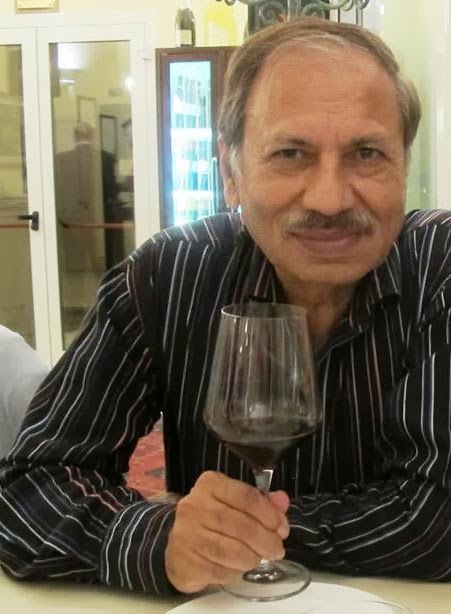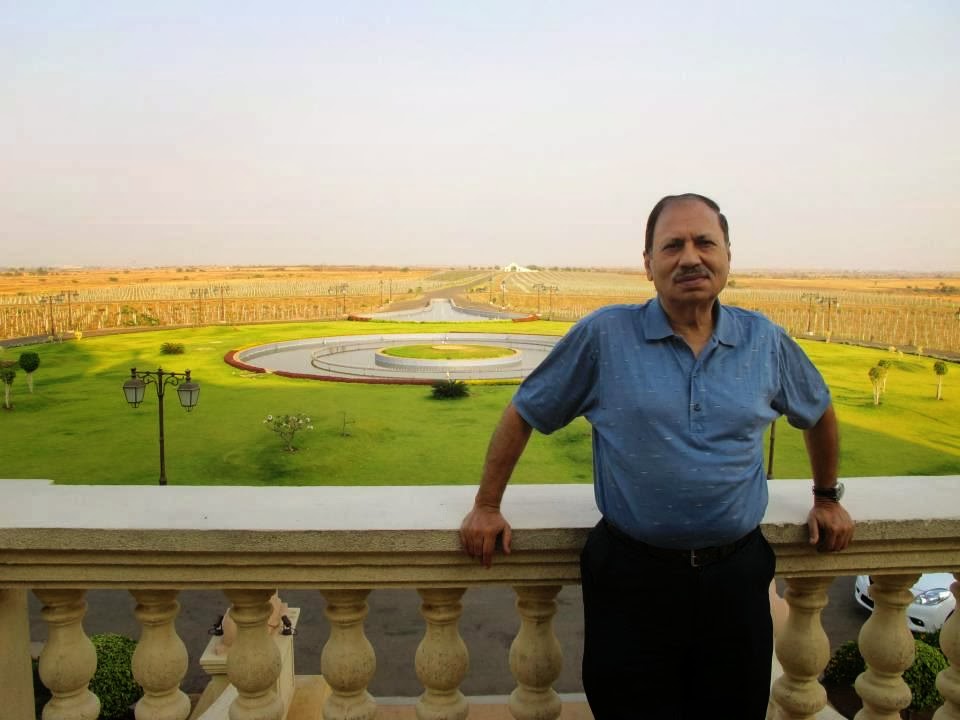 |
| Subhash Arora |
SA: Sinceramente, comencé beber vino como el más pequeño de los "males". Siempre había sido abstemio, incluso durante y después de mis días de universidad en los EE.UU. Yo trabajaba en un negocio de exportación, lo que implicaba viajes y conocer gente fuera. Mi pareja, que le encantaba el whisky, insistió en que le daba la impresión de que fuese vergonzoso para mí tomar bebidas alcohólicas. La primera vez que probé la cerveza, se me quitaron las ganas de seguir. Probé unos cuantos licores pero el alto grado de alcohol me desanimó. Recuerdo que probé un vino alemán, afrutado y seco. Me gustó y la historia de amor al comenzó en ese momento.
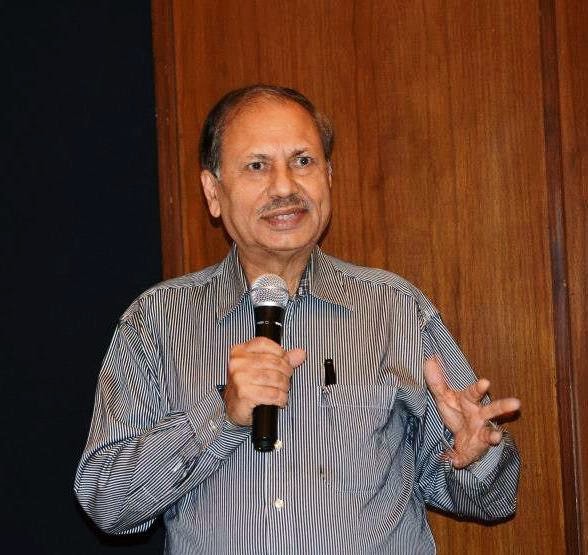 |
| Subhash Arora |
SA: He pasado los últimos 12 años promoviendo la cultura del vino en la India a través de la educación y la sensibilización. Se trata de una nueva bebida que comenzó como una moda y en el mejor de los casos como una bebida de mujeres. Sin embargo, hemos sido capaces de cambiar esa actitud. El comercio internacional, las visitas al extranjero por parte de mis compatriotas, las personas que estudian en el extranjero han convertido al vino en la estrella emergente entre las mujeres y los jóvenes a los que les gustan las bebidas alcohólicas. Otra razón es el estilo de vida y el factor salud. El momento es el adecuado porque hay estudios que muestran los beneficios del vino para la salud, lo que incita a muchas personas a beber vino. Todavía está de moda sostener una copa de vino en la mano.
 |
| Subhash Arora |
SA: Por supuesto. Aranceles de hasta el 300% o más hacen que los vinos importados sean muy costosos. Pero, por favor, no hay que olvidar que la mayoría de los hoteles obtienen vinos a coste cero en aranceles ya que solo tienen que pagar los impuestos especiales. Los hoteles suponen más del 50% del mercado. Nuestros hoteles mantienen los precios demasiado altos. Pero ese no es el único factor. Hay otros costes ocultos y barreras de procedimiento ya que el vino está dentro de la categoría del licor. La Constitución de la India es anti-alcohol y exhorta a los Estados a introducir la prohibición y les da el poder para establecer normas independientes. Es como si se tratara de 28 países diferentes, cada uno con su propia complejidad normativa.
 |
| Subhash Arora |
SA: Nos encontramos en una etapa muy temprana, en términos de reactivación. Empezamos prácticamente de cero hace 20 años y todavía estamos en los años de formación. Los productores inicialmente trataban de satisfacer la demanda local. Durante los últimos 5 años hemos visto esfuerzos más intensos hacia las exportaciones y estamos viendo algunos resultados. Con la reciente devaluación de la moneda, deberíamos ver un crecimiento sustancial de las exportaciones.
 |
| Subhash Arora |
SA: La clase media india la conforma alrededor de 300 millones de personas y son una parte importante de cualquier entorno comercial en la India, incluyendo el vino. Se estima que unos 20-30 millones de personas son bebedores potenciales. Hemos ido creciendo para comer y producir uvas durante décadas. De acuerdo con las cifras de la OIV (Organización Internacional de la Viña y el Vino) hace un par de años, la India fue el 9º país mayor productor de uva. Así que tenemos la historia apoyando el factor de crecimiento. Muchos de estos productores han comenzado a producir ahora uvas para vino.
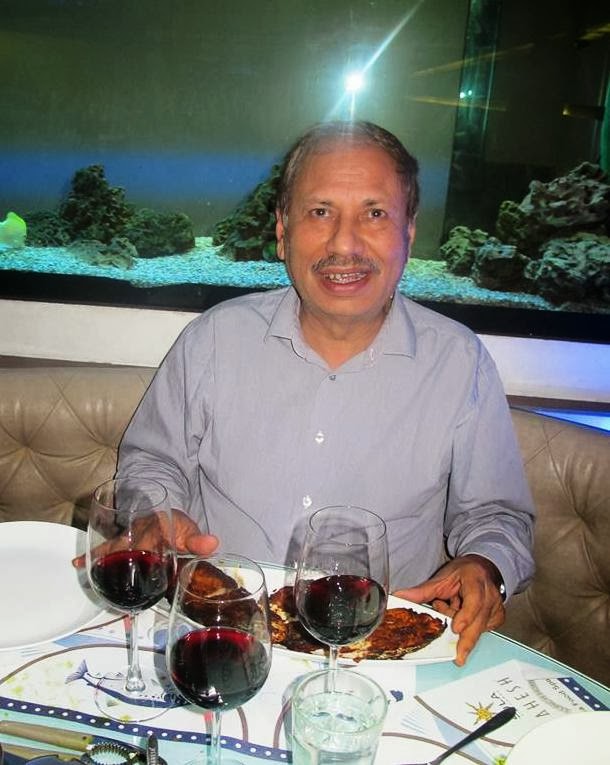 |
| Subhash Arora |
SA: Históricamente, el vino se produce en la India desde hace 3.000 años. Hay evidencias de que nuestros Dioses y antiguos reyes hindúes tomaban regularmente una bebida que parecía vino. Se sabe que los reyes mogoles que gobernaron la India antes que los británicos, eran amantes del vino y hay registro de vinos importados de Persia para ellos y los nobles. Los británicos también alentaron la producción de vino para su consumo desde Maharashtra a Cachemira, pero la filoxera destruyó todos los viñedos en 1890. No se plantaron nuevos viñedos hasta hace unos 30 años.
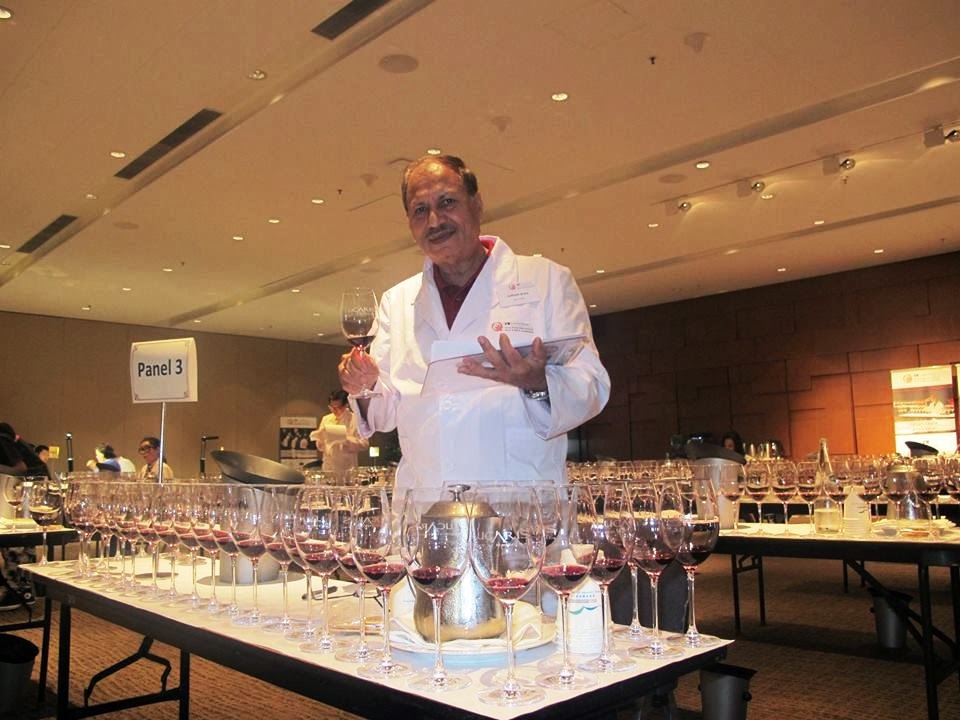 |
| Subhash Arora |
SA: Me siento un poco incómodo porque soy un intruso. Soy ingeniero de titulación y fui a los EE.UU., donde hice mi MS en Ingeniería Industrial y MBA (Master of Science y no un Master-Sommelier, ¡que ni siquiera existían en ese momento!), y entonces era abstemio. Me picó el gusanillo en la India hace décadas, he inicié el viaje solo, comencé a aprender sobre el vino por mi cuenta y sin ayuda. Desde que me he comprometido con la causa del vino, me resulta fácil promoverlo. Soy un profesional independiente en el sentido verdadero y realmente atrevido y muy objetivo en mi trabajo. La mayor responsabilidad es la de proyectar la imagen correcta de los vinos y del mercado, así como hacer que la gente comience a beber y amar a los vinos como resultado de una opción y estilo de vida. ¡Y estoy disfrutando del viaje!
 |
| Subhash Arora |
SA: Como ya he dicho, en un principio fue simplemente el más pequeño de los "males" para mí, ya que he sido una persona anti-alcohol durante toda mi vida. Tal vez por eso soy un gran defensor de los vinos, que tienen un grado de alcohol inferior y siempre le pregunto a enólogos y viticultores qué están haciendo para mantener los niveles de alcohol bajos y más ahora con el calentamiento global a la vuelta de la esquina.
Asistí a una conferencia médica internacional en el Valle de Napa, donde conocí y escuché a varios médicos hablando de los estudios que muestran que el vino tomado con moderación es bueno para el corazón. Junto con el hecho de que es un de estilo de vida, me sentí comprometido con ello. También fue una motivación que si la gente pudiera cambiar el licor por el vino, los problemas debidos al alcoholismo podrían reducirse. Lo que alimenta mi pasión es el hecho de que en realidad es un producto alimenticio y la enorme variedad de sabores de las mismas uvas en diferentes países. También ha sido una excelente manera de conocer gente y aprender sobre la geografía y las diferentes culturas.
 |
| Subhash Arora |
SA: Realmente no tengo la respuesta a esto. Me he centrado en la difusión de información a través de mi boletín del Vino que llega a 28.000 personas en 43 países. La gente respeta mi visión, pasión y objetividad. Nunca me he acercado a nadie a cambio de una recompensa. Creo que la pasión, un punto de vista independiente implacable y la objetividad han incrementado mi credibilidad. Mi verdadera recompensa es que parte de mis lectores sienten que les he ayudado a ellos y a la causa del vino sin ningún tipo de interés personal.
 |
| Subhash Arora |
SA: Los premios son una forma de reconocimiento de los que disfruto y a los que aprecio. También me producen miedo: sintiendo que el mundo del vino me está observando, a mí y a mi trabajo. También es una sensación fantástica el que grupos de personas reconozcan mi esfuerzo: estoy recibiendo agradecimientos y felicitaciones de los productores, enólogos y amantes del vino por mi contribución a la introducción de la cultura del vino en la India. Aprecio en particular, el título de Caballero en Italia y el Premio al Mérito de la O.I.V., además mi sitio web ha sido reconocido como el mejor por Grandi Cru d'Italia.
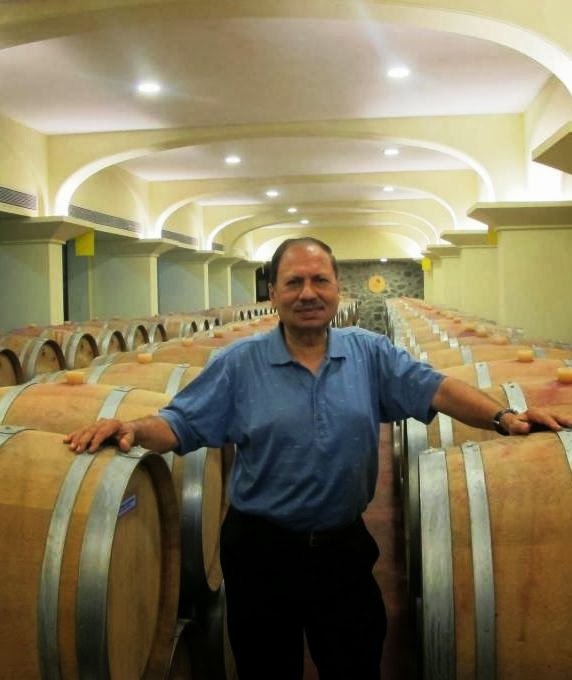 |
| Subhash Arora |
SA: No especialmente, excepto que fue en casa de un amigo. Me gustó la primera copa y nos terminamos la botella completa.
 |
| Subhash Arora |
SA No había nada romántico en el ambiente así que creo que no me acuerdo muy bien, sinceramente, aunque suene aburrido.
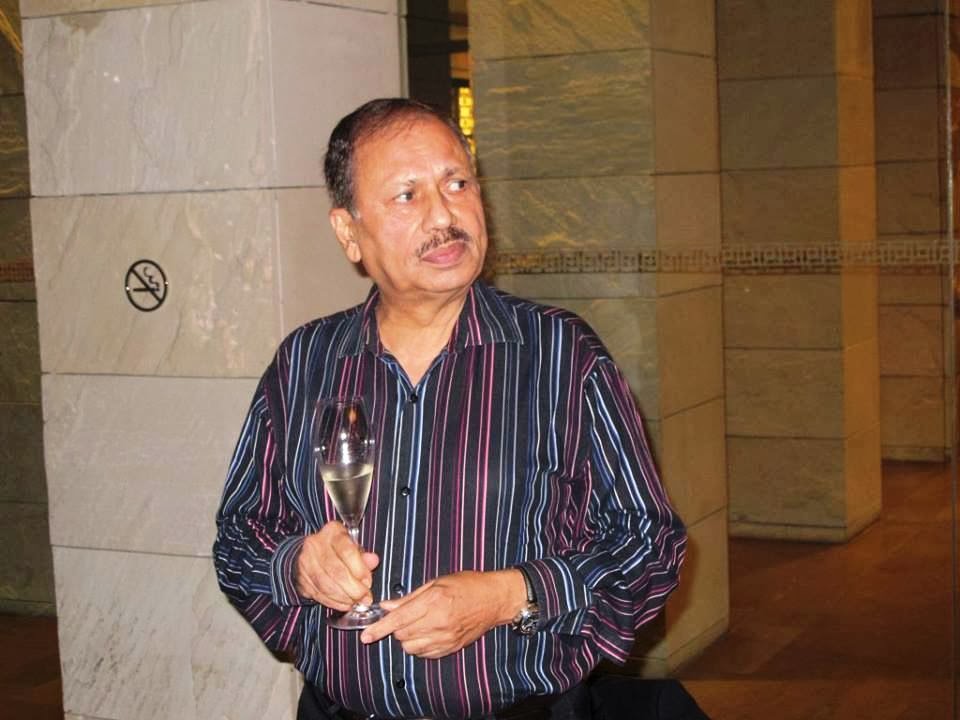 |
| Subhash Arora |
SA: Me han gustado mucho los vinos italianos. Un amigo italiano que trabaja en la embajada se ofreció a comprarme vino del economato, a pesar de mi reticencia inicial. Entonces le dije que me trajese cada vez una caja con al menos 6 marcas italianas diferentes. Yo visitaba con cierta frecuencia su casa y bebíamos diferentes vinos italianos. La lista de mis vinos favoritos es larga. Me gusta Barbaresco, Chianti Classico, Super Toscanos, Amarone, Gavi, Verdicchio, los blancos del Etna. Por supuesto, me encantan los vinos franceses, austríacos, alemanes, californianos, chilenos y también los neozelandeses. Son todos como niños para mí, y siempre encuentro difícil señalar uno especial.
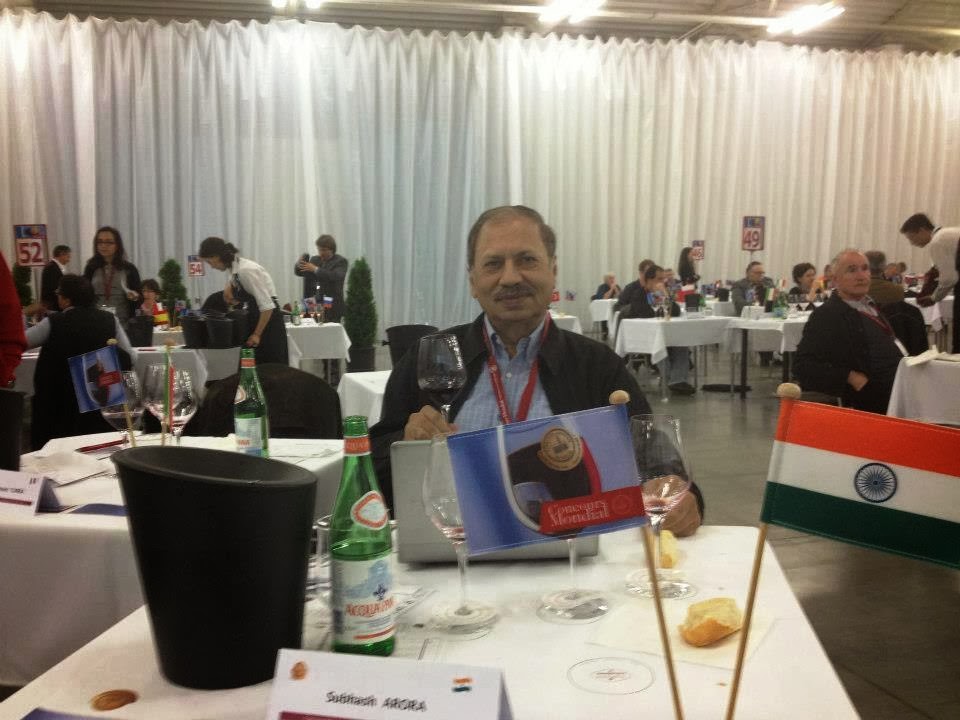 |
| Subhash Arora |
SA: La Academia India del Vino es una empresa privada de consultoría que imparte formación en contextos informales y a través de artículos escritos. Organizamos “cenas de vino” y degustaciones corporativas. Ya hemos organizado más de 250 de estos eventos en toda la India. Ayudamos a los productores extranjeros para venir y les damos información acerca de la India. Ayudamos a los productores de la India mediante la publicación de noticias sobre ellos, incluyendo catas. Organizamos viajes de vino, noches de catas de vinos para grupos de empresas y diferentes personas. Ayudamos a las diferentes delegaciones internacionales con información realista acerca de la industria del vino en la India. El mayor trabajo es a través de nuestro boletín electrónico semanal gratuito sobre el Vino que llega a 28.000 suscriptores. Da una imagen correcta del mercado de la India, en general y en cierta medida, sobre los mercados mundiales. Mantenemos a nuestros lectores al corriente de los estudios sobre el vino y la salud. Estamos trabajando en un proyecto interesante, pero prefiero no revelarlo hasta que nuestros planes fructifiquen.
 |
| Subhash Arora |
SA: El mundo se está moviendo hacia el consumo de menos cantidad de vino, pero de mejor calidad. Por eso hay una presión sobre la demanda. Los mercados emergentes como China, India, Brasil y Rusia y los mercados recién abiertos de Europa Central son la esperanza de un mayor consumo. También ha habido un aumento en los niveles de alcohol debido al calentamiento global. Los bodegueros y viticultores tienen que llegar a una solución para mantener los niveles de control sin que afecte al equilibrio. Aunque ya existe una tendencia en la reducción del uso de madera de roble, se necesita seguir en esa dirección. La agricultura ecológica y biodinámica tiene que ser apoyada para mantener el suelo. Me gustaría que los consumidores pidan los vinos producidos en este tipo de entorno.
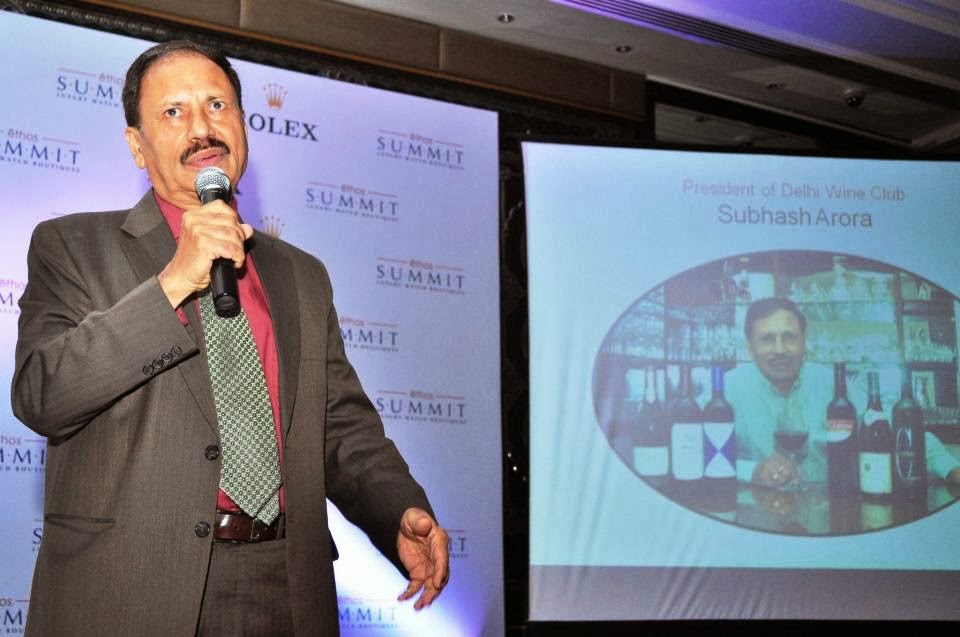 |
| Subhash Arora |
SA: Presencia continua, característica única distinguible ya sea en términos de imagen de marca, variedad de uva, origen, o de factores como los precios. Tienen que hacer visitas periódicas; una primera exploración para encontrar el socio adecuado y luego alimentar el mercado a través de visitas y apoyo. Una asociación débil es mucho mejor que suministrar a precios competitivos y luego no participar en la propuesta. Deben estar enamorados de la India, tener una conexión emocional. Es un mercado altamente competitivo, con un buen alcance a largo plazo. Las colaboraciones conjuntas tendrán una mejor oportunidad de supervivencia.
 |
| Subhash Arora |
SA: Se está convirtiendo en un factor muy importante. Las ventas on-line no son aún posibles en la India, pero el uso de Facebook, Twitter, Instagram, etc. es cada vez mayor y es indispensable sobre todo porque la publicidad de cualquier tipo no está permitida en la India.
 |
| Subhash Arora |
SA: Supongo que está hablando del Acuerdo de Comercio Exterior sobre el cual se han llevado a cabo conversaciones. Los temas son muy complejos y el vino no es el único problema, que más o menos ha sido resuelto. Es una lástima que no se haya materializado hasta ahora. Yo ya había dicho que a menos que se firmase el Acuerdo de Comercio Exterior antes de junio de 2013, tendríamos que esperar hasta nuestras elecciones nacionales que se llevarán a cabo en el 2014. He sabido por fuentes de la UE que ya han renunciado a eso y las conversaciones han pasado a un segundo plano. Tengo la esperanza de estar equivocado y que sería bueno para el consumidor y el mercado de vinos importados.
 |
| Subhash Arora |
SA: Como ya he dicho, hay muchas áreas que han de ser acordadas por ambas partes. Tenemos que tener cuidado en que no matemos la industria del vino indio en ciernes que necesita el apoyo, así como una sana competencia de los vinos importados para mejorar la calidad. Creo que debe haber aranceles mínimos en vinos caros, por ejemplo un 20-30% para los vinos que cuestan más de 10-15 €. Los vinos que cuestan menos de 2-3 €no deberían tener una reducción del impuesto. Eso no parece que vaya a ocurrir por ahora.
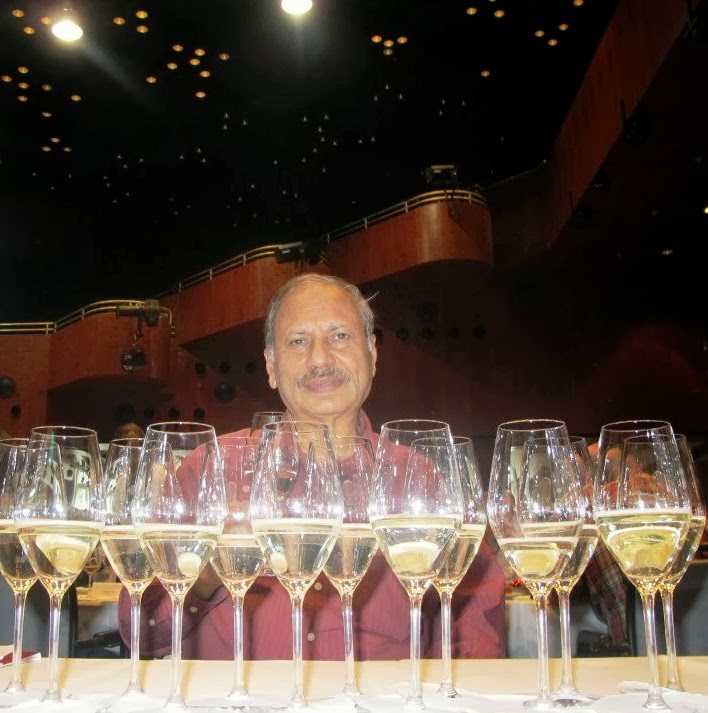 |
| Subhash Arora |
SA: Como ya he dicho, el enfoque de asociación con una postura a largo plazo y encontrar el socio adecuado son factores clave. La India es un mercado difícil y demasiado dependiente de los caprichos del gobierno. Pero el mercado se está expandiendo. También deben considerar la asociación en términos de equidad, la transferencia de tecnología, acuerdos de trueque sobre el vino para el negocio sea sostenible.
 |
| Debra Meiburg - Subhash Arora |
SA: Conozco a Debra Meiburg MW desde hace años. Ella es realmente la reina Americana del vino en Hong Kong (con las debidas disculpas a Jeannie Chow Lee, que es la reina Asiática del vino en Hong Kong). He tenido el privilegio de ser invitado a las cinco ediciones de la Cathay Pacific HKIWSC (Hong Kong International Wine and Spirits Competition) de la que ella es Co-Directora. También fui invitado por Decanter Asia Wine Awards a la sesión inaugural del año pasado y de nuevo este año. Así que fui a Hong Kong dos veces en octubre, como jurado en ambas competiciones. Para mí, estos eventos son muy interesantes y no sólo haciendo lo mejor posible mi labor como jurado, sino también como una gran oportunidad para aprender de otros expertos y jueces. No me gusta perder ninguna oportunidad para profundizar tanto como pueda y aprender cada vez más.
Sr. Subhash muchas gracias por la entrevista. In vino veritas, longae vitae!))
(*) Los premios de el Sr. Arora:
• Elegido como el mejor periodista del vino en la India por Wine Business International 2007
• Delhi Wine Club fue votado como el Mejor Club del Vino en la India en 2007
• Armado caballero por el presidente de Italia, en el año 2009 como un Cavaliere para la promoción de la cultura del vino en la India y ayudar a las empresas italianas en sus esfuerzos para entrar en el mercado indio.
• Su sitio web www.indianwineacademy.com fue elegido como el "Mejor Sitio Web '2011 por Comitato Grandi Cru d'Italia en Vinitaly 2011
• Premiado Mérite de l'OIV en 2011 por la OIV con sede en París por un servicio excepcional a la industria del vino
• Fue nominado para el premio 'Best Wine periodista extranjero "por Grandi Cru d'Italia en 2010, 2011, 2012 y de nuevo en 2013.
(Traducido por Lola Torres)


